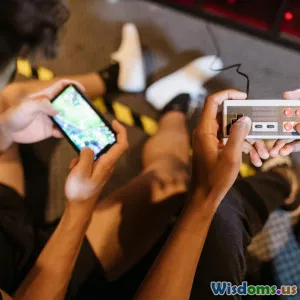
Gaming Communities: Building Connections Online
5 min read Explore how gaming communities foster connections and friendships in the digital age. (0 Reviews)
Gaming Communities: Building Connections Online
In the rapidly evolving landscape of gaming, communities have become a cornerstone for creating connections and fostering relationships among players. These online spaces serve not only as venues for gameplay but also as social hubs where individuals can share experiences, collaborate, and build friendships. This article delves into the various aspects of gaming communities, their significance, and how they are shaping the future of social interaction in the digital age.
The Rise of Gaming Communities
The advent of the internet transformed gaming from a solitary activity into a vibrant social phenomenon. With the rise of multiplayer games and online platforms, players from different parts of the world can connect and engage in real-time. Gaming communities have emerged as essential spaces where players can come together, regardless of geographical boundaries.
Types of Gaming Communities
-
Game-Specific Communities: Many games have dedicated forums, subreddits, or Discord servers where players can discuss strategies, share fan art, and organize events. For instance, the Fortnite community is known for its active engagement, with players frequently sharing gameplay tips and hosting tournaments.
-
General Gaming Communities: Platforms like Twitch and YouTube allow gamers to connect over broader gaming interests. Streamers often cultivate communities by engaging with their audience through live chats and social media.
-
Social Media Groups: Facebook groups or Twitter hashtags can also serve as communities, where players discuss gaming news, share memes, and organize meet-ups.
Building Connections in Gaming Communities
Communication Tools
Effective communication is at the heart of any community. Many gaming communities utilize tools like voice chat, forums, and instant messaging to facilitate interaction. Discord, for example, has revolutionized how gamers communicate, providing a space for voice channels, text chats, and screen sharing.
Inclusivity and Diversity
Gaming communities have the potential to be inclusive and diverse, providing a welcoming environment for all players. Initiatives aimed at promoting inclusivity can include:
- Safe Spaces: Creating guidelines that discourage toxic behavior and promote respect among members.
- Support Groups: Establishing groups for underrepresented players, allowing them to share experiences and seek support.
Shared Experiences and Events
Communities often organize events such as game nights, tournaments, and charity streams, which can strengthen bonds among members. Participating in these activities fosters a sense of belonging and teamwork that enhances the gaming experience. For instance, charity streams often bring communities together for a common cause, showcasing the power of gaming for good.
The Impact of Technology on Community Building
Technological advancements have played a crucial role in shaping gaming communities. Virtual reality (VR) and augmented reality (AR) are creating immersive experiences that enhance social interactions. Games like VRChat allow players to interact in a virtual space, providing a new dimension to community building.
Challenges within Gaming Communities
Toxicity and Harassment
While many gaming communities are positive and inclusive, toxicity and harassment remain prevalent issues. Developers and community leaders are actively working to combat these challenges by implementing moderation tools and promoting a culture of respect.
Maintaining Engagement
As gaming trends evolve, keeping community members engaged can be challenging. Regular updates, community-driven content, and feedback loops are essential for maintaining interest and participation.
Conclusion
Gaming communities are more than just groups of players; they are vibrant ecosystems that foster connections, collaboration, and creativity. As the gaming industry continues to grow, the importance of these communities will only increase. By promoting inclusivity, leveraging technology, and actively engaging members, gaming communities can create lasting relationships that extend beyond the screen. Whether you are a seasoned gamer or a newcomer, joining a gaming community can enrich your gaming experience and help you build meaningful connections in the digital world.
Rate the Post
User Reviews
Popular Posts





















